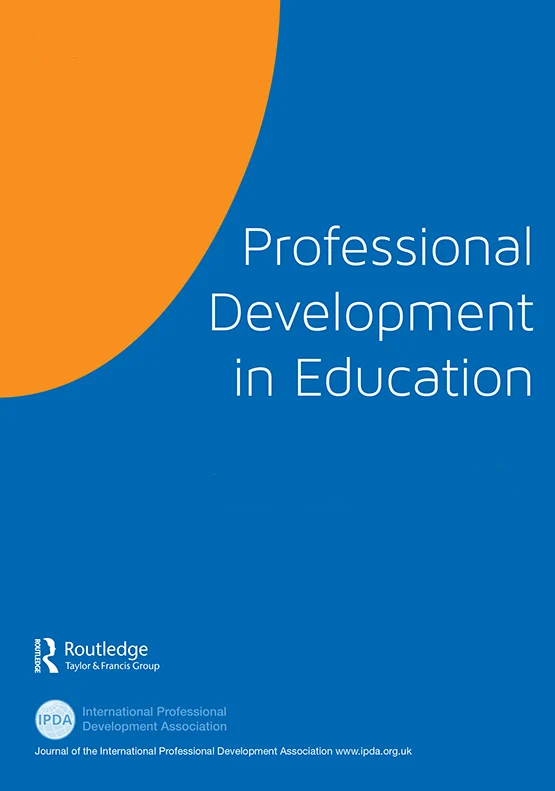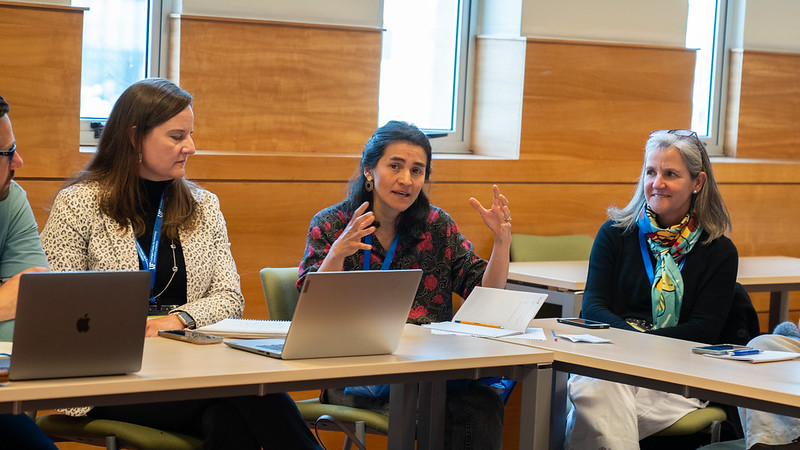Expanding our Practical and Methodological Lenses to Advance Democratic Values in Turbulent Times
We invite submissions for article proposals for an upcoming Special Issue of the journal, Professional Development in Education (PDiE), on approaches to the leadership of professional learning that have helped the global education community to negotiate recent turbulence due to recent changes, including but not limited to societal, political, and economic influences on what happens in schools and classrooms.

Drawing from the history of the Leadership for Professional Learning symposia and its antecedents, especially the Leadership for Learning network initiated by the Faculty of Education at the University of Cambridge, we summarize an evolution of ideas to arrive at our current understanding of ‘leadership for professional learning.’ First, Leadership for Learning is defined as a form of educational practice, characterized by shared activity and dialogue accountable to a focus on learning, shaped by human agency, operationalized conscious of and within a specific context, and fueled by moral purpose toward the actualization of democratic values (Swaffield & MacBeath, 2009). As such, it should be understood as an individual or shared practice or activity rather than as a role or position, which can be enacted by many stakeholders within and beyond schools including students and teachers as well as school and system leaders (MacBeath et al., 2018). Leadership for Professional Learning can be understood as an outgrowth of leadership for learning that deepens the focus on one aspect of the original framework: the professional learning of educators, characterized by “reflective dialogic inquiry” that stimulates educator learning and advances educational outcomes (Poekert, et al., 2020). Such work involves critical reflection, reframing, and scrutiny in a way that builds educators’ capacity to understand and improve their practice by asking questions, collecting evidence, and making sense of the interaction of activity and outcomes. These interactions occur within the context of schools, the systems that govern them, and the larger sociopolitical and economic environment, and they must be acknowledged as a highly complex network of influences, a “situated multiplicity of factors” that affect how leadership translates to teacher learning, teacher practice, and student learning (Margolis & Strom, 2020). Finally, in order to advance from an acknowledgement of complexity to actionable guidance for research and practice, we are called to adopt a flexible approach, rooted in pragmatism, that conceives of practice itself as a form of inquiry that aims to transform an indeterminate situation through directed reflection and advance the achievement of a participatory democracy (King et al., 2023). Leadership for professional learning is thus both a form of educational practice characterized by the above as well as an academic community that aims to advance the field through shared learning and dialogue around tools and principles that guide action and critical reflection on examples of practice.

This special issue will be built on the recent Leadership for Professional Learning symposium titled “Educators and Professionalism in Turbulent Times” held in Santiago, Chile, on 17-19 July 2024. This symposium built off years of recent work by the PDiE journal and the community it cultivates through active engagement in professional conferences, the hosting of convenings such as the symposium, and the publication of special issues, two of which emerged from previous instances of the LfPL symposium (46.4, 2020 & 49.6, 2023) and which range in topics from the non-linear perspectives on professional learning (47:2-3, 2021) to the perspectives of Latin American and Caribbean education scholars and practitioners (forthcoming as 51.1, 2025). We aim to publish this special issue by December 2025.
As a community of researchers and practitioners, the Leadership for Professional Learning network convenes contributors in a global dialogue around leading professional cultures that support both new and experienced educators facing various challenges. The fifth Leadership for Professional Learning Symposium, hosted by Líderes Educativos at Pontificia Universidad Católica de Valparaíso, highlighted a global problem: the initial preparation and continuing development of educators in times of increasing complexity and challenges. School systems worldwide have faced teacher shortages, and it has become more common for schools to employ emergency-certified educators and long-term substitute teachers. The symposium focused on the different approaches to professional learning needed to equip new entrants from a wide variety of backgrounds to become competent educators and to support and retain qualified teachers. The symposium also explored the role of leaders in supporting the learning journeys of those responsible for educating young people and adults. The symposium provided an opportunity for leaders, practitioners, researchers, and policymakers to share innovative ways of negotiating the turbulence facing educators today.
Citations
King, F., Poekert, P., & Pierre, T. (2023). A pragmatic meta-model to navigate complexity in teachers’ professional learning. Professional Development in Education, 49(6), 958-977.
MacBeath, J., Dempster, N., Frost, D., Johnson, G., & Swaffield, S. (2018). Strengthening the connections between leadership and learning: Challenges to policy, school and classroom practice. Routledge.
Margolis, J., & Strom, K. (2020). Assessing the success of teacher leadership: The case for asking new questions. Professional Development in Education, 46(4), 607-621.
Poekert, P.E., Swaffield, S., Demir, E. K., & Wright, S. A. (2020). Leadership for professional learning: a systematic literature review. Professional development in education, 46 (4), 541–562.
Swaffield, S., & MacBeath, J. (2009). Leadership for learning. In J. MacBeath & N. Dempster (Eds.), Connecting leadership and learning: Principles for practice. (pp. 32-52). Routledge.
